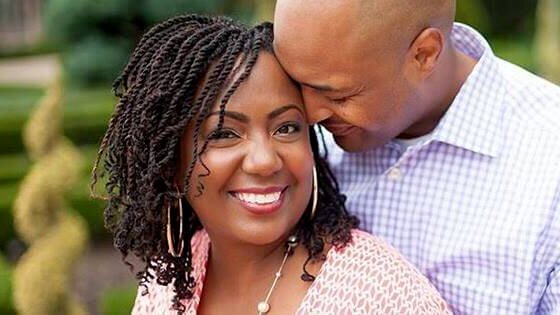
Black Couple Launches Online Course to Help Entrepreneurs with Their Business
Bernard Jones and Georgia Giles-Jones, a couple from Minnesota that have officially launched CVH Recovery, an extension to their recovery home business, Central Village Housing LLC.
CVH Recovery offers resources to entrepreneurs how to own, operate, and manage a successful recovery home in any state. Through their online course, entrepreneurs can learn and benefit from lessons on recovery home audits, and recovery home coaching. They also have a membership for future and current recovery homeowners/operators.
Since 2015, the couple has opened several successful recovery homes that they own, operate, and manage.
In 2018, Georgia and Bernard began consulting others looking to open recovery homes, following their recovery home model with a proven model of success. When the pandemic hit in March of 2020, their consulting had to be put on hold to maintain safety for their families and residents. However, a growing need for housing that promoted a healthy lifestyle for those struggling with addiction became incredibly apparent.
Throughout the year stories appeared around recovery homeowners abusing their power by demanding high deposits, overcharging for rooms, filling homes above capacity, destabilizing communities within their homes, delegating harsh consequences, or putting them out with little to no notice.
And with limited options for affordable sober-friendly housing, to begin with, many have been forced to either deal with sub-par conditions, remain in homeless shelters, unhealthy environments, or the streets.
According to the Centers for Disease Control and Prevention (CDC) Director Robert Redfield, M.D. “The disruption to daily life due to the COVID-19 pandemic has hit those with substance use disorder hard. As we continue the fight to end this pandemic, it is important to not lose sight of different groups being affected in other ways. We need to take care of people suffering from unintended consequences.”
Unfortunately, some of those consequences include relapse, agitation of previous mental illnesses, and general conflict for vulnerable adults makes owning these kinds of homes seem intimidating.
But after watching their community continuously battle addiction after addiction Georgia and Bernard are especially adamant about the topic:
“Battling the stigma around recovery home ownership is the priority to hopefully encourage potential recovery home-owners to take the leap. We have seen such a huge increase in overdoses this 2020 because of backlash from the pandemic- people are jobless, lonely, stressed; and with so many negative stories coming out about recovery homes, we worry it seems like owning a recovery home is something that cannot or should not be done. It’s really an affordable housing crisis for a particular group of people – and we need all the help we can get.”
While a sober home, or as Georgia and Bernard prefer to call it: a recovery home, is not a licensed treatment centre, they will use their e-Course to promote recovery homes using the Social Model to evolve and adapt the community within for better co-habitation and a more supportive living environment.
“We’re so excited to be able to offer this nationwide. This has been something we have wanted to do since safe and healthy recovery homes can be hard to come by in some areas. We hope with our experience and resources, we will attract those who are looking to start their own recovery home to better their communities and build financial wealth.”

